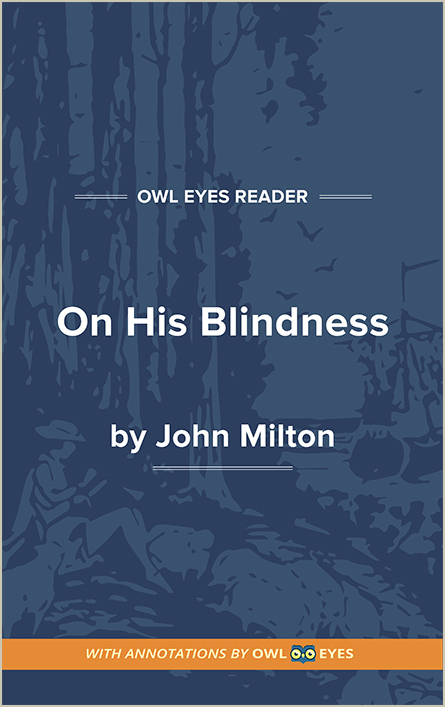Milton's sonnet concerns the universal desire to discover and develop one's talents. The poem suggests that each of us is given one or several gifts which we are obliged to identify, utilize, and develop throughout our lives or else experience disappointment, failure and frustration. The Bhagavad-Gita says something similar and invokes Milton's idea of a "maker" to be served:
In the beginning
The Lord of beings
Created all men,
To each his duty.
'Do this,' He said,
'And you shall prosper.'
The problem for many of us is to discover our talent—or talents. This process may involve a lot of trial and error. But it is obviously a matter of the utmost importance. Milton was neither the first nor last person to consider the great importance of putting one's gifts to work. Many thinkers of the past have their their attentions to this topic:
Blessed is he who has found his work; let him ask no other blessedness.
—Thomas Carlyle (1798–1881)
A man is relieved and gay when he has put his heart into his work and done his best; but what he has said or done otherwise, shall give him no peace. It is a deliverance which does not deliver. In the attempt his genius deserts him; no muse befriends; no invention, no hope.
—Ralph Waldo Emerson (1802–1883)

